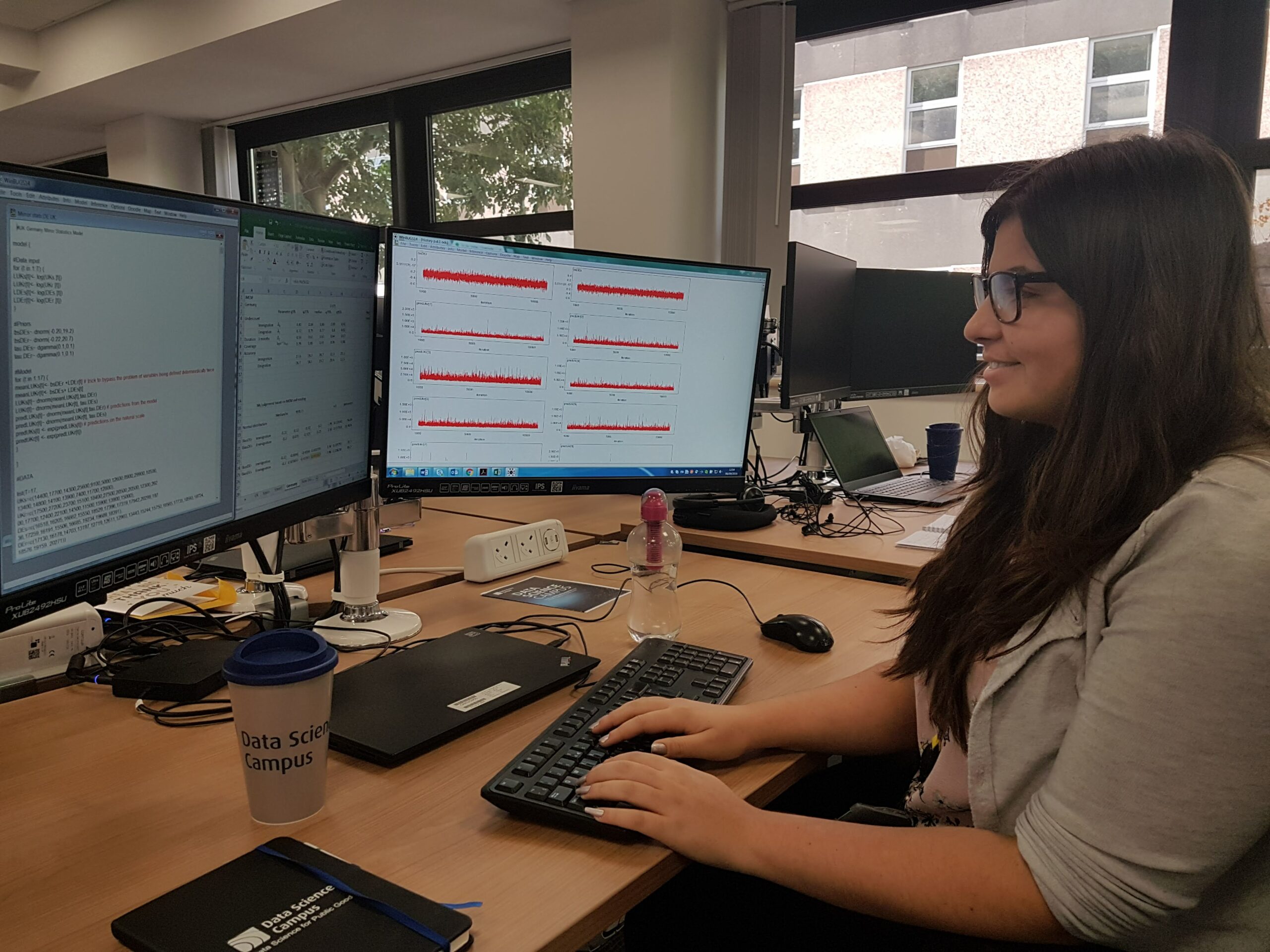3-month MSc madness: the value of a Data Science Campus internship

How did I end up at ONS?
In the midst of Christmas and New Year (also known to students as the revision season), I received an email advertising a three-month placement with the Data Science Campus (DSC). I had no data science experience, though was keen to learn more. I had nothing to lose by applying and a few months later here I am!
Settling in to ONS was easy, as everyone was friendly and approachable. While the internship sits with the Data Science Campus, as I am just finishing up my MSc in Demography, most of my work came from the Migration Statistics team. This meant I got to work across divisions and got more exposure to the work ONS does.
What has my three months involved?
My main piece of work, which I am currently transforming into a dissertation, is about international migration mirror statistics. This was the ideal piece of work for me, as I could use the skills I have developed over my Masters and apply them to work. The project involved heavy research into different countries’ methodologies for capturing migrant flows as well as data gathering, tidying and analysis. Further to this, I have been attempting to build a Bayesian Data Assessment Model for my dissertation (a what? Yeah, my thoughts too initially).
I have been fortunate enough to also attend some interesting conferences (the Integrated Data for Population Statistics Conference (IDD), Civil Service Live and the Government Statistical Service (GSS) Symposium) and, of course, visited the Data Science Campus in Newport. One of the best things I have found at ONS is the encouragement to attend presentations and events. I particularly enjoyed the IDD conference about the use of admin data in population estimation, but as I am a demographer I am slightly biased.
What will I be taking away?
While my main work did not sit within the DSC, I have improved my knowledge on data science. My key take-away from this internship is to think beyond standard methods and see if there is a different, more efficient method – which may involve data science.
To be continued…
My time with ONS is not ending with my three-month placement. I will have a frantic four days till my dissertation deadline and then a break for a few weeks before heading back to start working with the Longitudinal Study team in the Population Statistics Division. So not a “goodbye”, but a “to be continued”. Regardless, I would like to say a big thank you to everyone at the DSC and in the Migration Statistics team, who made me feel welcome and ensured my internship was valuable.